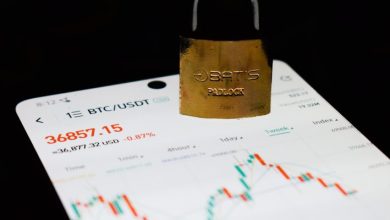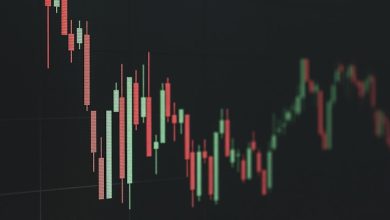Blockchain in the Food Industry: Safety and Traceability

- Understanding the Basics of Blockchain Technology
- Enhancing Food Safety with Blockchain
- Benefits of Implementing Blockchain in the Food Industry
- Ensuring Transparency and Trust with Blockchain
- Improving Traceability in the Food Supply Chain
- Challenges and Opportunities of Using Blockchain in Food Safety
Understanding the Basics of Blockchain Technology
Blockchain technology is a decentralized, distributed ledger system that enables secure and transparent transactions without the need for intermediaries. In the food industry, blockchain can be used to enhance safety and traceability by creating an immutable record of every step in the supply chain. This technology allows stakeholders to track the journey of food products from farm to fork, ensuring that they meet quality and safety standards.
One of the key features of blockchain is its ability to create a tamper-proof record of transactions. Each block in the chain contains a unique cryptographic hash of the previous block, making it nearly impossible to alter or delete information once it has been added. This ensures that the data stored on the blockchain is secure and trustworthy, providing a high level of transparency and accountability in the food supply chain.
By implementing blockchain technology in the food industry, companies can improve food safety by quickly identifying and addressing any issues that arise. For example, if a food product is found to be contaminated, blockchain allows stakeholders to trace the product back to its source within minutes, rather than days or weeks. This rapid response can help prevent the spread of foodborne illnesses and protect consumers from harm.
Additionally, blockchain technology can help enhance traceability in the food industry by providing a complete record of each product’s journey through the supply chain. This allows consumers to access detailed information about where their food comes from, how it was produced, and how it was transported. By scanning a QR code or using a mobile app, consumers can view information such as the farm where the product was grown, the date it was harvested, and the temperature it was stored at during transit.
In conclusion, blockchain technology has the potential to revolutionize the food industry by improving safety and traceability. By creating a secure and transparent system for tracking food products, blockchain can help build trust between consumers and food producers, ensuring that the products they buy are safe, high-quality, and ethically sourced. As more companies adopt blockchain technology, the food industry will become more efficient, resilient, and responsive to the needs of consumers.
Enhancing Food Safety with Blockchain
Food safety is a top priority for both consumers and food industry stakeholders. Blockchain technology offers a promising solution to enhance food safety by providing a transparent and immutable record of the entire food supply chain. By leveraging blockchain, food companies can track the journey of food products from farm to table, ensuring that they meet the necessary quality and safety standards.
One of the key benefits of using blockchain in the food industry is its ability to improve traceability. With blockchain, each step in the food supply chain can be recorded in a secure and decentralized manner, making it easier to identify the source of any contamination or foodborne illness outbreaks. This increased traceability not only helps to protect consumers but also allows food companies to quickly respond to any safety concerns and prevent further spread of contaminated products.
In addition to traceability, blockchain technology can also help to verify the authenticity of food products. By recording detailed information about each product on the blockchain, including its origins, processing methods, and transportation details, consumers can have greater confidence in the quality and safety of the food they are purchasing. This transparency can also help to reduce food fraud and counterfeit products in the market.
Overall, blockchain has the potential to revolutionize the food industry by improving food safety and traceability. By implementing blockchain technology, food companies can build trust with consumers, protect their brand reputation, and ensure the highest standards of quality and safety for their products. It is clear that blockchain is not just a buzzword, but a powerful tool that can drive positive change in the food industry.
Benefits of Implementing Blockchain in the Food Industry
Implementing blockchain technology in the food industry brings numerous benefits that can help improve safety and traceability throughout the supply chain. By leveraging blockchain, companies can enhance transparency, efficiency, and trust among stakeholders.
One of the key advantages of utilizing blockchain in the food industry is the ability to track and trace products from farm to fork. This enables companies to quickly identify and address any issues that may arise, such as contamination or spoilage. With blockchain, all relevant information about a product, including its origins, processing, and distribution, can be securely recorded and accessed in real-time.
Moreover, blockchain can help streamline processes, reduce paperwork, and minimize the risk of fraud or errors. By automating data management and verification, companies can save time and resources while ensuring the accuracy and integrity of their records. This not only improves operational efficiency but also enhances consumer confidence in the safety and quality of the products they purchase.
Furthermore, blockchain technology can also facilitate better collaboration and communication among different parties in the food supply chain. With a shared, decentralized ledger, all stakeholders can access consistent and up-to-date information, leading to improved coordination and decision-making. This can help prevent delays, disputes, and inefficiencies that can arise from miscommunication or lack of transparency.
In conclusion, implementing blockchain in the food industry offers a wide range of benefits that can help enhance safety and traceability, improve efficiency and trust, and foster better collaboration among stakeholders. By leveraging this transformative technology, companies can better meet the growing demand for safe, high-quality food products while building a more resilient and sustainable supply chain.
Ensuring Transparency and Trust with Blockchain
Ensuring transparency and trust with blockchain technology in the food industry is crucial for consumers and businesses alike. By utilizing blockchain, companies can provide a secure and immutable record of every step in the food supply chain, from farm to table.
Blockchain allows for real-time tracking of food products, enabling consumers to verify the authenticity and safety of their purchases. This transparency builds trust between consumers and food producers, as it ensures that the information provided is accurate and reliable.
Moreover, blockchain technology can help in detecting and preventing food fraud, such as mislabeling or counterfeit products. By creating a decentralized ledger that records all transactions, blockchain makes it nearly impossible for malicious actors to manipulate the data without being detected.
Overall, implementing blockchain in the food industry not only enhances safety and traceability but also fosters a culture of transparency and trust among all stakeholders. It is a powerful tool that can revolutionize the way we produce, distribute, and consume food, ultimately leading to a more secure and sustainable food system.
Improving Traceability in the Food Supply Chain
Ensuring traceability in the food supply chain is crucial for maintaining food safety standards and building consumer trust. Blockchain technology offers a solution to improve traceability by providing a transparent and immutable record of every transaction and movement of food products from farm to table.
By leveraging blockchain in the food industry, stakeholders can easily track the journey of food products, identify potential issues or contamination points, and take immediate action to mitigate risks. This level of transparency not only enhances food safety but also allows for quick and efficient recalls when necessary.
Implementing blockchain technology in the food supply chain can help reduce the impact of foodborne illnesses, prevent fraud and counterfeit products, and improve overall supply chain efficiency. With real-time access to accurate data, stakeholders can make informed decisions to ensure the quality and safety of food products at every stage of the supply chain.
In conclusion, blockchain technology has the potential to revolutionize the food industry by enhancing traceability and safety standards. By embracing this innovative solution, stakeholders can build a more resilient and trustworthy food supply chain that prioritizes consumer safety above all else.
Challenges and Opportunities of Using Blockchain in Food Safety
Implementing blockchain technology in the food industry brings both challenges and opportunities in terms of safety and traceability. While blockchain can enhance transparency and accountability in the food supply chain, there are also obstacles that need to be addressed to fully realize its potential.
One of the challenges of using blockchain in food safety is the initial cost of implementation. Companies may need to invest in new technology and training to integrate blockchain into their existing systems. Additionally, there may be resistance from stakeholders who are unfamiliar with blockchain and hesitant to change their processes.
Another challenge is the need for standardized protocols and regulations to govern the use of blockchain in the food industry. Without consistent guidelines, there may be issues with interoperability between different blockchain platforms, leading to data discrepancies and inefficiencies in the supply chain.
Despite these challenges, there are numerous opportunities for using blockchain in food safety. Blockchain can improve the traceability of food products, allowing consumers to track the journey of their food from farm to table. This increased transparency can help build trust between consumers and food producers, leading to greater confidence in the safety and quality of food products.
Blockchain technology also has the potential to revolutionize food recalls by enabling faster and more accurate identification of contaminated products. By recording each step of the supply chain on a tamper-proof ledger, companies can quickly pinpoint the source of contamination and remove affected products from the market, reducing the risk of foodborne illnesses.



